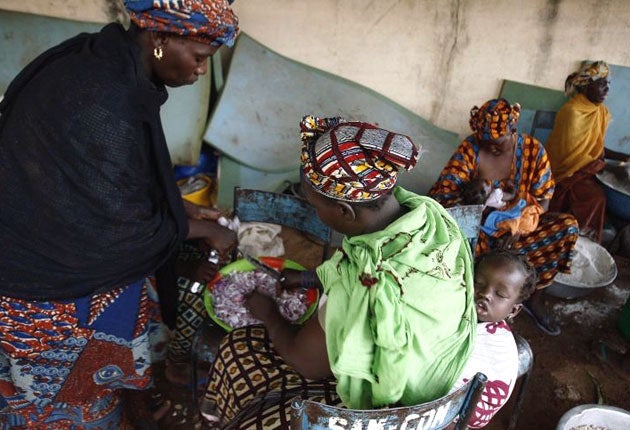Mali president forced to retreat on women's rights law

Your support helps us to tell the story
From reproductive rights to climate change to Big Tech, The Independent is on the ground when the story is developing. Whether it's investigating the financials of Elon Musk's pro-Trump PAC or producing our latest documentary, 'The A Word', which shines a light on the American women fighting for reproductive rights, we know how important it is to parse out the facts from the messaging.
At such a critical moment in US history, we need reporters on the ground. Your donation allows us to keep sending journalists to speak to both sides of the story.
The Independent is trusted by Americans across the entire political spectrum. And unlike many other quality news outlets, we choose not to lock Americans out of our reporting and analysis with paywalls. We believe quality journalism should be available to everyone, paid for by those who can afford it.
Your support makes all the difference.Muslim leaders in Mali were declaring victory yesterday after seeing off a new law that would have improved women's rights in the country.
President Amadou Toumani Touré refused to sign a new legally binding family code, passed earlier this month by parliament, that would have meant women no longer had to obey their husbands. The new code instead called for husbands and wives to "owe each other loyalty and protection".
The President was forced to back down after a string of mass protests in the mainly-Muslim West African nation.
However, Mr Touré denied caving in to the country's leading Islamic body and traditional leaders. "Having widely consulted state institutions, civil society and legal bodies, and seen the need for peace, I have taken the decision to send the code... back for a second reading," he said in a televised address.
The Ppresident indicated that he felt a lot of false information had been spread about the nature of the code. He insisted that only 10 changes would be made to "correct imperfections". The struggle over the new laws which included better inheritance rights for women and the raising of the marriageable age to 18 has exposed rifts between Mali's urban and educated centres and its more traditional rural population.
There is a growing backlash against modernisers and the president was criticised for coming under the influence of foreign aid organisations.
Mali's High Islamic Council was able to draw 50,000 to a street demonstration in the capital Bamako this month. The protesters included large numbers of women who insisted they should be governed according to Islamic law.
Join our commenting forum
Join thought-provoking conversations, follow other Independent readers and see their replies
Comments